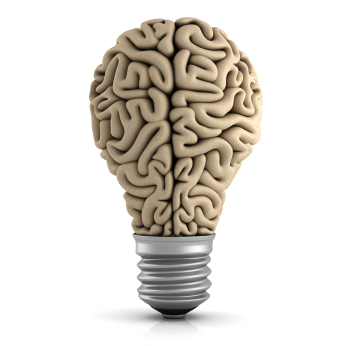
© istockphoto
Drawing on his work at a top multinational corporation and his scholarly work, Markman says science confirms that smart thinking is not an innate quality but rather a skill to be cultivated. Humans are not born with a particular capacity to do smart things. “Each of the components of being smart is already part of your mental toolbox,” he says.
In his forthcoming book “Smart Thinking,” (Perigee Books, January 2012) Markman distills for readers the information he accumulated over six years of teaching Procter & Gamble employees how to become more effective problem solvers and his decades of cognitive psychological research. In the forward, Craig Wynett, the chief learning officer for Procter & Gamble, and Dr. Mehmet Oz praise Markman for writing such a mix of “leading-edge science” and “news you can use.”
“I have always had an interest in how to bridge the gap between research and the application of that research in the world,” says Markman, director of the Human Dimensions of Organizations program at The University of Texas at Austin. The program is a new type of executive education focused on an understanding of the people inside and outside organizations that drive performance in today’s diverse global marketplace.
Synthesizing research from many areas of neuroscience and psychology, Markman gives examples of great thinkers such as James Dyson, industrial designer and founder of the Dyson company, to illustrate his core concepts such as the importance of understanding how things function.
“There is a lot of work exploring the difficulties of acquiring functional knowledge and examining ways to improve this type of learning,” Markman says. “Because Dyson knew about the way a lot of things work, he had what psychologists call causal knowledge. He also understood that it is possible to apply causal knowledge from one area to another area.”
The book also draws extensively on research about how analogies are formed and used to solve problems. Many solutions to difficult problems arise as the result of analogies drawn from other areas of expertise. As an example, Markman tells a story about his son deducing an answer to a tough homework question about electrical currents by using his existing knowledge about the flow of water.
Markman scatters brief interjections throughout the book, which he calls “Instantly Smarter” — tips that readers can begin employing immediately.
The takeaway of “Smart Thinking” is that people whom society considers “smart” are no more innately gifted than anyone else; they have developed a range of things they know about and refined their ability to use the knowledge they have when they need it.
“The main piece of advice is that you can become smarter,” Markman says. “By understanding the way you use knowledge to solve problems, you can develop smarter habits to learn more about the way the world works and to describe problems effectively.”
Source: University of Texas at Austin
